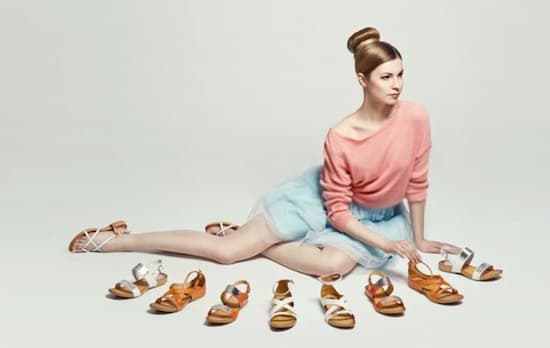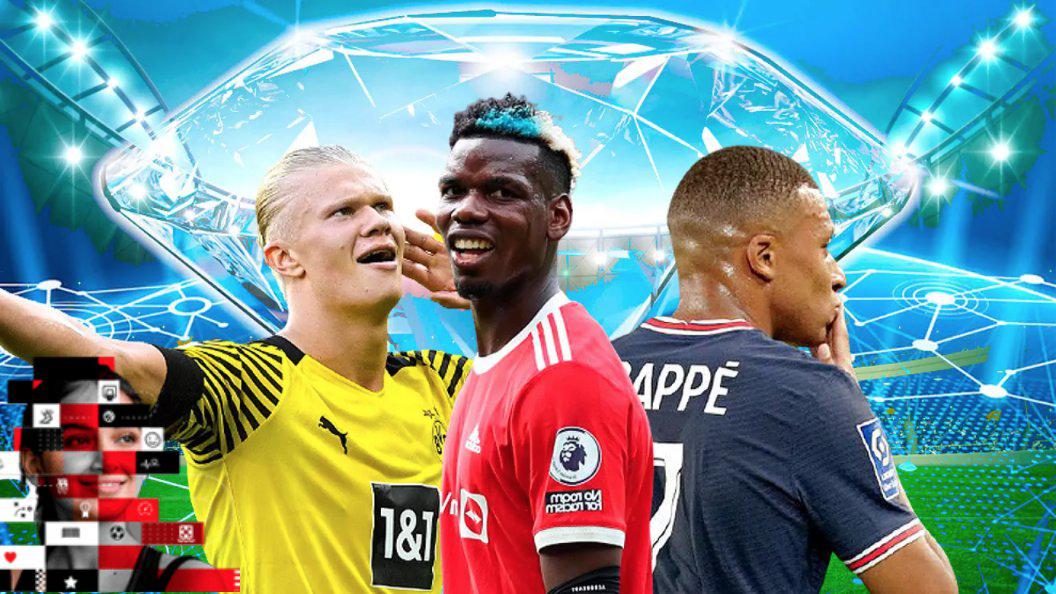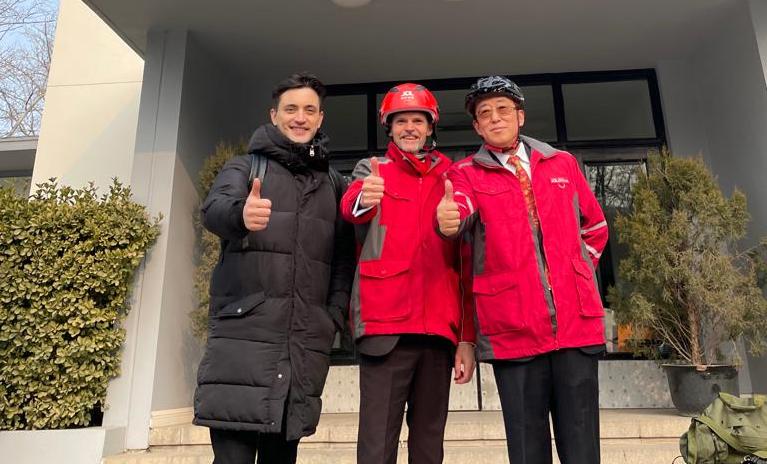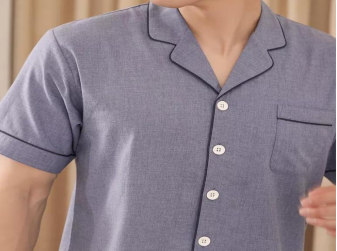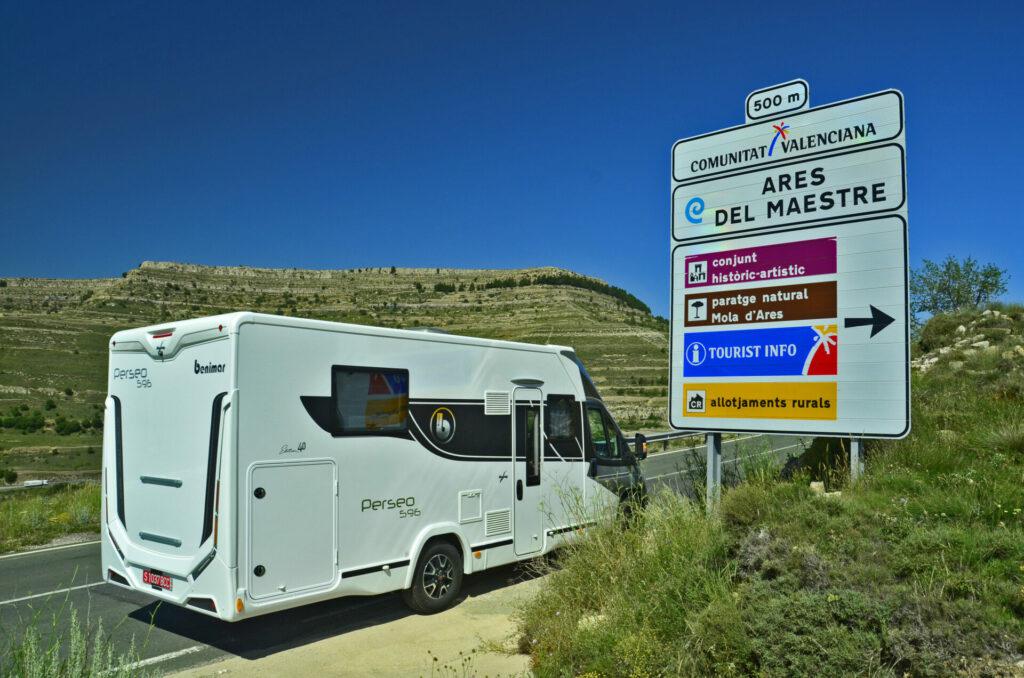Home → fancy clothes → An accident on the m...
An accident on the mountain changed his life and he became the world's first wheelchair ski instructor.
August 3, 2005. In San Carlos de Bariloche it rains torrentially and the snow does not stop falling. After one o'clock, his friends pick him up from work, like every day, to practice snowboarding on Cerro Catedral. Germán gets on the board and begins to make a descent, going through a small hill. The wind in his face generates an inexplicable adrenaline rush. A flurry of security prompts him to do a pirouette, perhaps too daring. Germán falls on his back, face up.
So, he listened to crack .
"Guys, I can't feel my legs." They were his first words after the fall. He assures that at the moment of the accident he knew that he was never going to walk again. His friends told him that it was simply because of the blow, that the sensation would return. "But I felt that something broke, an electricity, like something short-circuited and then died."
The family, who were celebrating their grandmother's birthday in La Plata, had to travel to Bariloche as an emergency. The confirmation of the spinal cord injury was obtained after a tomography: "Germán, you will not walk again".
"I don't want to live like this. I don't want to know anything” , he remembers him thinking. The injury was irreversible. “The vertebrae made me like a guillotine, like a crack. They cut the spinal cord and from that moment I could neither move nor feel from the navel down”.
“I was on the crest of the wave, like any young person at 32 years old. He had a girls' clothing business, he snowboarded, he did not have severe commitments but he did work to be able to live better. And from one minute to the next this happens to you and you say 'that's it, my life ended here'”, he reflects.
But his negative thoughts did not last long . “When I arrived in La Plata after the accident and saw my family and friends and the support they gave me… That was the repair of the spine that had broken. I felt that I had to show them all the best, but also do it for me”, explains Germán. For this reason, he decided to rehabilitate himself in the city and then continue his life in Bariloche. He had unfinished business in Río Negro. He had to go back and learn to ski.
“It was a decision that not everyone agreed with, but I wanted to continue living my life. I already knew what I was going for, I imagined it, I dreamed it. I am passionate about skiing. I haven't missed a season since the accident. The following year I was already doing adaptive skiing, which a woman from the United States taught me,” she explains.
After the accident she started skiing with a social foundation in Bariloche, but she couldn't learn. She then contacted a friend of Comodoro Rivadavia who was also in a wheelchair and had learned. He lent him her equipment, but to no avail. “The four of us got together, with our wives, and we went out to eat. There he tells me that he studied with a woman from the United States, Kirsten Atkins , but he had to travel there. She was a move. I was already defeated. I had no one to teach me how to ski."
That same night his friend met Kirsten, by chance or by fate, in another restaurant in Bariloche. She was on her honeymoon with her husband and she agreed to teach Germán in San Martín de los Andes, where the land was flatter.
Three days was all he needed to learn. “I learned with the reins method, he was letting me go, letting go. When she let go of me and I started skiing alone next to her… You don't know what emotion. She cried like a child. Today we talk about teaching and she is very proud of me. That type of teaching seeks independence, it does not seek the photo”.
Twelve seasons and many hours of training passed until the possibility of becoming an instructor arose. His friend and adaptive ski teacher Santiago Pinedo was the one who proposed, along with Martín Bacer, president of the AADIDESS (Argentine Association of Ski, Snowboard and Pisteros Lifeguards Instructors), to take the course. Fears and doubts came from both sides: Was it possible that a wheelchair instructor could teach a "conventional" person? Would you be more flexible with him?
“I want to do the same thing that a standing person does, with an entrance exam. If I go in, I go in. If I don't get in, I don't get in. Nothing to get ahead of myself." That was the condition that Germán demanded to accept the proposal. After passing the entrance exam, with technical tests, there were 20 days of intense training from 9 in the morning to 5 in the afternoon, in addition to theoretical classes. “I had one of the best grades, in a course of 50 people. They were all 18 year olds. I gave them talks, motivated them. It was an incredible experience".
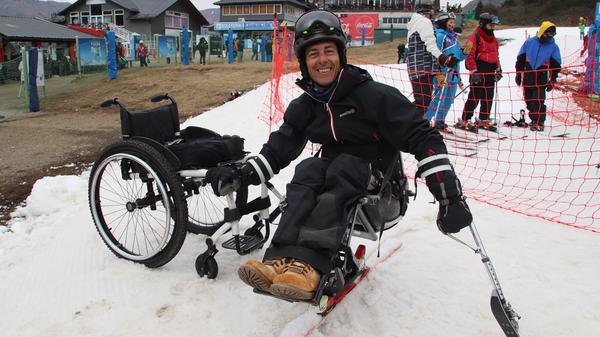
Thus, in 2018 he became the first and (so far) only wheelchair ski instructor in the world.
Germán is a born motivator. His energy and smile are contagious. ”I have a poster on the fridge in my house with a phrase from a boy, Pablo Fernandez, who has quadriplegia and gave a TED talk, 'The impossible is in the minds of the comodos' ”, he tells.
How to embrace failure and bounce back strong https://t.co/jyXscUNYxu #tips
— Trident University International Wed Jun 10 21:33:59 +0000 2020
In 2019 he received the BIENNIAL award from the ALPI Civil Association, a non-profit NGO dedicated to the rehabilitation of people with motor disabilities. Today, in addition to being an instructor and being in charge of the disability area of the municipality of San Carlos de Bariloche, he gives motivational talks and is a representative of a national company that will manufacture adapted ski equipment in the country. He also rebuilt his personal life after the accident: he has three children with his ex-wife, Joaquina, a ten-year-old girl, and Fausto and Iñaqui, six-year-old twins.
-How was your life before the accident?
-Before the accident he worked in a clothing business and had another with a partner in El Bolsón. He worked all day. He had recess from business hours, from 1 to 4 in the afternoon, and he used it to go to the hill. Also he worked at an institute for boys with disabilities. Then I became one of them. It's like life was preparing me for everything that was going to happen.
- What was your job in the NGO?
-I did it as a hobby. The institute is called Cre-Arte, it is recreational and cultural. I liked Bariloche so much that I wanted to leave something behind, do something as a thank you. I started working with them ad honorem. I would go and prepare lunch, not as a cook, but as an organizer. And then it occurred to us to start training them to run the Bariloche anniversary marathon, for the hundred years. About 27 boys were added and we ran in 2002, 2003, 2004 and 2005. The last one I ran in a wheelchair, with the boys pushing me.
-How did you go through the first moments after the injury?
- At first I was scared, because I already got very depressed about a lot of things even when I walked. Something happened to me and it was the worst: "Why does this happen to me? why?". As time went by I began to look for the good. Something so bad happens to you that you begin to see the good, even the least. I always want to convey that to all the boys or adults who have such an unexpected change. It depends purely and exclusively on each one and on the desire you have to do things to get ahead.
-You said you had a feeling the day before the accident.
- Yeah, that was really crazy. I lived on a farm and had three horses. There was a mare that was very bad, she didn't lend her to anyone. A few days before the accident when I climbed up, I nailed myself and threw myself forward. He spent several days like this, nailing me and throwing me forward. The same blow I did when I had the accident. I remember that at that time I was with a couple and I said: "What happens if I have an accident and I'm in a wheelchair?". “I'll kick you out on Wednesday”, he answered. Later the doctor explained to me that it was a repetitive blow that caused my accident, it was not just the one on the mountain. I was not aware. He was very irresponsible. I really liked throwing myself off cliffs, off bridges. Also, that day I didn't want to go skiing.
Do you remember the return to the mountain?
-The first time we went up the hill with my brother, I told him: "I'm going for revenge." I trained like two or three seasons. It is impressive to feel the wind on your face. You feel very free, you fly. We do not feel that sensation of speed in a wheelchair, unless we ride a motorcycle or do some wind sport. But if not, you don't feel it. I always laugh when I say that the only way I feel the wind on my face, the sensation of speed, is when I stick my head out the car window. That made me want to go back to the hill.
-What do you think changed with the American instructor? She skied you out in three days.
-The photo. Many people approach this sport and people with disabilities to take a photo. The difference was that a person came and he told me: “I am going to teach you to ski and you are going to learn”. It wasn't to go around 20 times and do a promo. The foundation thing was great because they provided me with the materials so that I could learn to ski, but I didn't find someone who would tell me “I'll walk you out in so many days”. That security is very difficult to convey in adapted skiing.
- Why?
-They say: “We don't want to delude you”. I do excite them. "You're going to learn to ski and stop screwing around because you're going to make it." If he gets sick because he doesn't learn, he gets sick in the same way as any person who doesn't walk. When Kirsten told me that she was going to teach me in three or four days, she already gave me the confidence to learn. That is what we have to try to convey.
-At some point did you reconsider being an instructor?
- Yes, I had terrible pressure because everyone told me "You're going to be the first in the world." The course physically blew me away, I lost a lot of weight. Also, there was a group of instructors who said that I was not going to be able to teach. They signed forms and everything so that I wouldn't take the course, even teachers. Then everything changed, it was shown that he could. Even when I started teaching children in wheelchairs last year, without a rein or assistant, hand in hand with the teacher, they didn't agree either. They wanted to close a track on me. This happens out of fear that someone will be hurt, so that no person is hit or so that the instructor does not have an unpleasant moment, it is not out of malice. But I was convinced that I could teach. Being in a wheelchair do you have to have a different track or a different way of teaching? Do not! It can be easily taught. What remained as background is that you can work too. Now adapted skiing, in addition to being competitive, is a job opportunity. What else do I want that there are successors in all this?
-Is there any difficulty in teaching while in a wheelchair?
-I think the problem is trust and that they really believe that I can teach them. Conveying that is the difficult part, showing you that the movement of my hands is the movement of your feet. But they choose me, they know I'm in a wheelchair. So they are arranged in another way. They know that if they fall I explain to them how to get up, but I can't get them up. These difficulties occur as you teach the class and you have to overcome them, otherwise the teaching will fall to the devil.
- Who can you teach?
-I received my degree to give classes to people who walk, but the important thing that happened, and that will be historic for Argentina, is that a person sitting down can teach him in one stop and in one sitting, in the same way and with the same technical teaching method.
-What do you like most about teaching?
-Last year I was able to teach two boys in a wheelchair, in the same way as if they were walking, totally independent. I think that closed the entire skiing circuit, which is what I'm passionate about. I don't even do it for money. In 2018 I graduated and worked on it like any instructor. Now I hardly even charge for classes. I do them because I like it. I teach kids in wheelchairs too, at a cost, but as a matter of responsibility. The other day a person from Ushuaia came in a wheelchair to learn to ski and stayed at my house so as not to spend money on accommodation. So imagine that it is not something commercial. It is opening paths.
- You always talk about the importance of setting new goals.
- Yes, I set new goals all the time. Now I want to surf adapted. I think that is the sport that is going to change my hill. I also like to give motivational talks, transmit adapted skiing and that there is a very good life. I am also manufacturing equipment with a company that I represent in Patagonia. You do not know how difficult it is to get them abroad, because they are not sold in Argentina. If something breaks you have to ask for it outside and it is very expensive. If there is no team, you cannot learn. Those are the new goals. I enjoy the dreams and the things that I can achieve, or not, but I enjoy the journey minute by minute. You have to keep reinventing yourself and rearranging expectations.
-Do you have any dreams?
-I'll show you with an example. When you go skiing, there is a place where queues are made to get on the lifts. On the right side there is a queue for priority for people on monoskis or adapted skis, on the other side are conventional people. I am always alone. My wish is to make a queue of two or three people. That will mean that we are doing things right.
- What message would you like to leave?
- I always like to convey to people who have an unexpected physical change, like mine, that they happen for a reason. You have to move on and have the life you had, the best possible, in your own way and with your physical difference. You don't have to stay in the complaint or why. I tell everyone that having a spinal cord injury is no excuse for anything. You can have a family, you can have a girlfriend, you can have sex, you can have a job. I am a totally happy person. Life is much more beautiful, perhaps, than if I had walked. There are many people who have accidents and get scared, they say “the world is over here”. No, that's where it starts.
Germán may not walk anymore but, surely, he will continue to feel the wind on his face.
KEEP READING:
